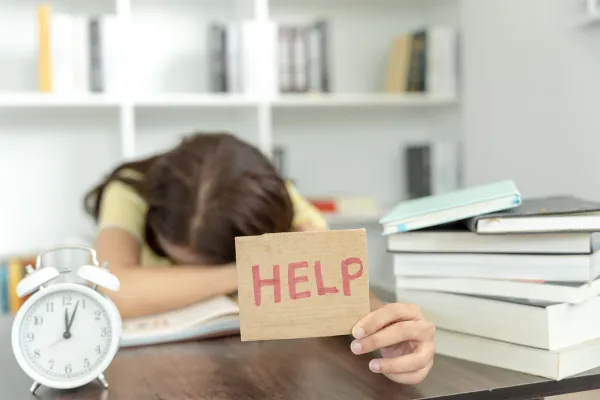

7 Common Misconceptions About Anxiety
Anxiety gets a bad rap. You’ve probably heard someone say, “Just stop overthinking,” or “You need to calm down,” as if anxiety were simply a matter of choice. It’s not.
For millions of people, anxiety isn’t a momentary worry; it’s a mental, emotional, and even physical experience that can shape how they show up in everyday life. And yet, it’s still wildly misunderstood.
Understanding what anxiety really is—and isn’t—can take some of the fear and shame out of the equation. And more importantly, it can open the door to healing.
What Is Anxiety, Really?
Anxiety is a natural response to perceived danger. It’s your body’s built-in alarm system designed to help you survive. Sweaty palms, racing heart, rapid thoughts. That’s your nervous system doing its job.
The problem is, anxiety doesn’t always know the difference between a real threat and a false alarm. And when that alarm keeps ringing—especially in safe situations—it can start to take over your life.
It’s also worth noting that anxiety is not the same as stress. Stress usually has a clear cause (a deadline, an argument, a lost job). Anxiety can show up even when nothing is obviously “wrong.”
Now that we’ve got the basics down, let’s learn some of the most common myths that need busting.
1. Myth: Anxiety Means You’re Weak
Truth: Anxiety is not a character flaw.
In fact, many people with anxiety are high achievers, perfectionists, or highly sensitive individuals with deep empathy and awareness.
Anxiety is often a sign of a highly tuned nervous system, not a sign of weakness. Anxiety doesn’t make you fragile. It makes you human.
2. Myth: You Can Just ‘Think Your Way Out of It’
Truth: Anxiety isn’t solved by logic alone.
Sure, cognitive strategies can help, but anxiety is often rooted in the body’s threat response, not just your thoughts. That means simply telling yourself “there’s nothing to worry about” often doesn’t work.
To really heal, you may need tools that address both your mind and your body, like breathwork, nervous system regulation, or trauma-informed therapy.
3. Myth: If You Avoid Triggers, You’ll Be Fine
Truth: Avoidance feeds anxiety.
It’s natural to want to dodge anything that makes you feel anxious. But here’s the kicker: the more you avoid, the more powerful the anxiety becomes.
Learning to gradually face fears (what therapists call “exposure”) is often a key part of building confidence and resilience. Avoidance teaches your brain that the danger is real, even when it isn’t.
4. Myth: Medication Is a Cop-Out
Truth: Medication can be a helpful tool, not a crutch.
Not everyone with anxiety needs medication, but for some, it can be life-changing. Taking an SSRI or anti-anxiety medication doesn’t mean you’ve failed. It means you’re using available resources to support your well-being.
Think of it like glasses. If you can’t see clearly, would you say wearing glasses means you’re “not strong enough” to see on your own?
5. Myth: You’re Just Being Dramatic
Truth: Anxiety symptoms can be very real and sometimes even terrifying.
Shortness of breath, chest pain, dizziness, nausea… anxiety can mimic serious medical conditions. Panic attacks, in particular, can feel like a heart attack or like you’re dying.
You’re not “making a big deal out of nothing.” Your experience is real and it matters.
6. Myth: You Should Be Able to Handle This on Your Own
Truth: Anxiety thrives in isolation.
Many people feel ashamed to talk about their anxiety, especially if they believe they should be able to cope alone. But anxiety is nothing to be ashamed of and healing often begins in safe, supportive relationships.
That might mean talking to a trusted friend, joining a support group, or working with a mental health professional.
7. Myth: Therapy Is Only for ‘Serious’ Cases
Truth: Therapy is for anyone who wants to feel better.
You don’t need to hit rock bottom to seek support. Therapy can help you:
Identify thought patterns that fuel your anxiety
Learn coping tools that actually work
Heal from past experiences that may be triggering your nervous system
Therapy isn’t just about fixing what’s broken; it’s about learning to live with more freedom, presence, and ease.
Taking Action: Small Steps to Start Reclaiming Your Calm
If you’re living with anxiety, you don’t have to overhaul your life overnight. Start with tiny, manageable shifts:
1. Name it. Simply saying “This is anxiety” can reduce its power.
2. Breathe low and slow. Try breathing into your belly for a count of 4, hold for 4, and exhale for 6.
3. Move your body. Even a short walk can help burn off stress hormones.
4. Practice grounding. Try the 5-4-3-2-1 technique: Name 5 things you can see, 4 you can touch, 3 you can hear, 2 you can smell, and 1 you can taste.
5. Ask for help. Whether that’s a friend or a professional, you don’t have to do this alone.
ABOUT US

Jeanne Prinzivalli
Therapist + Coach
I help ambitious, anxious women learn how to trust and put themselves first, so they can stop burning themselves out trying to meet other people's expectations.
SELF CARE CONTINUUM
CLIENT LINKS
LET'S CONNECT
Let’s get you started on relief from self-sabotaging patterns so you can move forward with your life and career passions.
Self Care Continuum Copyright © 2023.




